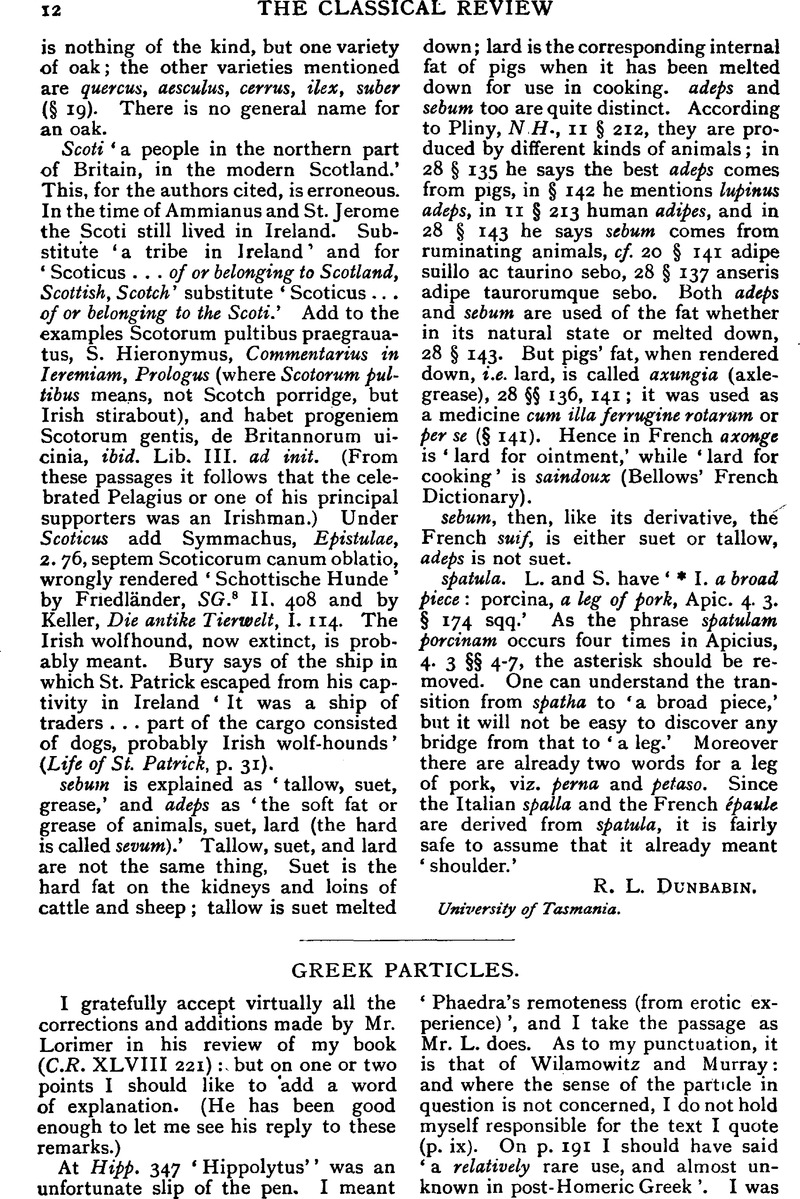Crossref Citations
This article has been cited by the following publications. This list is generated based on data provided by
Crossref.
Cusset, Christophe
2003.
Ménandre ou la comédie tragique.
p.
217.
Amiech, Christine
2004.
θυραῖοϛ ou οἰκεῖοϛ au vers 811 d’Alceste ?.
Kentron,
p.
113.
Cremoux, Anne de
2009.
Iris passe-murailles et les limites de l’utopie : quelques réflexions sur une épiphanie comique dans les Oiseaux (vv. 1199-1261).
Pallas,
p.
83.
Bollack, Jean
2010.
L’Œdipe Roi de Sophocle. Tome 4.
p.
1233.
2010.
Studies in Greek epigraphy and history in honor of Stefen V. Tracy.
p.
369.
Helmer, Étienne
2010.
La part du bronze.
p.
291.
Werlings, Marie-Joséphine
2010.
Le dèmos avant la démocratie.
p.
349.
Mambrini, Francesco
2011.
Dossier : Émotions.
p.
165.
Francobandiera, Daria
2012.
Effets sémantiques et fonctionnalité dramatique de quelques interjections dans les Euménides d’Eschyle.
Méthodos,
Conti, Luz
2014.
Zu den Fokusadverbien bei Homer: Analyse von ἔτι.
Historical Linguistics,
Vol. 127,
Issue. 1,
p.
208.
Biraud, Michele
2014.
ὁ αὐτὸς οὗτος- N: une structure de SN propre à la classe des spécifiants du nom en régime rhétorique.
Glotta,
Vol. 90,
Issue. 1-4,
p.
71.
2014.
V 3 Laches.
p.
217.
Delcomminette, Sylvain
2014.
Ancient Ethics.
p.
383.
2014.
Ancient Ethics.
p.
479.
Destrée, Pierre
2014.
Héraclite : l’injure et la moquerie philosophiques1.
Cahiers « Mondes anciens »,
Ventrella, Gianluca
2015.
Il commentario inedito di Adolf Emper (ms. Leid. BPG 89, ff. 94r-103r) al Diogene o sulla tirannide (or. 6) di Dione di Prusa.
Kentron,
p.
165.
Le Meur-Weissman, Nadine
2015.
Sens et emplois des termes φύσις et φυά chez Pindare.
Études platoniciennes,
Conti, Luz
2015.
Zum adverbialen Gebrauch von ἀνά bei Homer.
Glotta,
Vol. 91E,
Issue. 1,
p.
27.
Jacobson, David J.
2015.
Vocative ΟΥΤΟΣ in Greek Drama.
Classical Philology,
Vol. 110,
Issue. 3,
p.
193.
Pontier, Pierre
2015.
Remarques sur la megalègoria de Socrate et le tumulte des juges.
Kentron,
p.
59.
